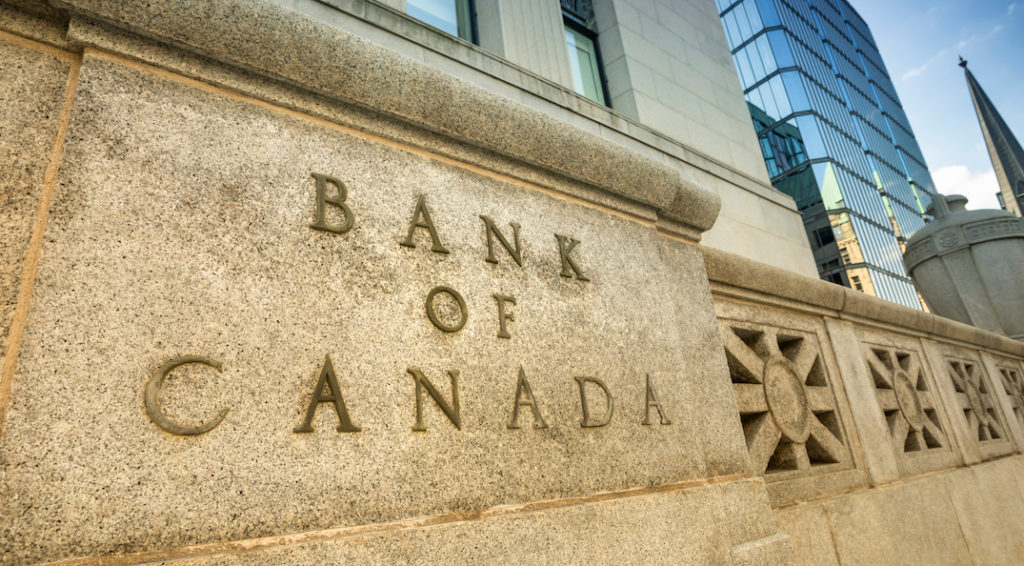
The Bank of Canada had their rate update today (April 13th, 2022) and announced another much anticipated rate increase to the overnight rate. It was risen by 0.50% to 1.00%. This is still lower than pre-pandemic levels. The Bank of Canada overnight rate was 1.75% and was 1.25% in March 2020.
Below, we clarify what this means to the average Canadian mortgage holder.
For the full update from the Bank of Canada:
Key Points from the update
- Bank of Canada increased their rate by .50% to a new rate of 1%
- The global economy is suffering from supply chain issues which is causing increased prices (known as inflation)
- The main driver of today’s increase is the government’s attempt to fight inflation
- Likely we may be looking at another increase in June at the BOC next rate meeting
How this affects everyday Canadians
- Interest rates on variable debt (variable rate mortgages and lines of credit) will increase by .5%
- For every $100,000.00 of mortgage debt payments will increase by roughly $24.00 a month (based on a 25 year amortization)
Our thoughts
As seen in the chart here: https://wowa.ca/bank-of-canada-interest-rate The Bank of Canada dropped their overnight rate by a total of 1.5% during the onset of Covid. We have now recouped .75% of that. There is likely to be more increases to “normalize” rates in the coming year.
Variable rates continue to be very attractive due to the large gap between fixed and variable rates. A reminder that fixed and variable rates move independently of each other. Fixed rates have jumped up much faster than variable rates. Many lenders now have their 5 year fixed rates sitting at over 4%. For those in variable rates interested in locking it a quick reminder that fixed rate mortgages can come with very high penalties. For example breaking a $400,000.00 fixed rate mortgage can easily have a penalty of $20,000.00. Inflationary times tend to cause real estate prices to fall. While we still have a shortage of supply in the market in BC that could change in the coming months. It is important to factor in potential costs of breaking a mortgage when deciding to be at a fixed or variable rate.
Below are some reasons to lock into a fixed as well as reasons to stay in a variable mortgage:
Reasons to Lock In
Peace of Mind: if you are uncomfortable with the idea of your mortgage payment moving up and down over time you may want to consider locking as it takes the ‘thinking about it’ out of the equation. For some people paying a higher monthly payment and potentially much higher penalty when they sell/refinance can be worth the stress of thinking about rates.
Fixed Income or Financially Constrained: If you have a fixed income (pension, annuity, etc) or your family finances are tight, then you may not be able to adapt to mortgage payments higher than a specific threshold. In this case, the security of a fixed rate mortgage might be best even though it means paying more in interest and having higher payments over the next few years. It’s like buying insurance – you pay more money in interest today for the guarantee of knowing your payments will stay within your budget.
Reasons to Stay Adjustable/Variable
Short Term Savings: Variable rates continue to be more competitive than fixed rates. This means that you are paying less interest per month in a variable rate mortgage. To capitalize this you can further increase your payment to pay off your mortgage faster. Or bank the difference to build a nest egg/savings.
Long Term Possible Savings: If you believe that Prime won’t continue rising through 2025-27 because the national and global economies and supply chains will be recovered by then, you will stand to save further interest costs in those years if the Bank of Canada starts to reduce Prime to avoid recession.
Flexibility: If there is a significant chance you may sell the mortgaged property in the next few years (to upsize for more space, downsize as kids move out, to relocate for a new job, etc), the penalty to cancel an adjustable/variable rate mortgage is usually much lower than that of a fixed rate mortgage.
As always, please feel free to reach out to us at anytime with your mortgage questions.